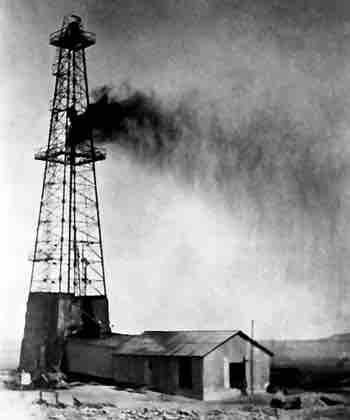May 2016, Vol. 243, No. 5
Web Exclusive
2015 Worst Year For Oil Discoveries Since 1952

A report by Rystad Energy has revealed that new oil discoveries in 2015 totaled 12.1 billion barrels, which is the least amount of new oil discovered in a single year since 1952.
Last year was also the fifth year in a row in which the amount of new reserves discovered was smaller than in the previous year.
E&Ps have slashed their exploration budgets repeatedly in a bid to weather the effects of the oil price drop. They’ve laid off hundreds of thousands of staff and have focused on staying afloat, lacking not just the money, but also the motivation to look for new oil when profitability is questionable.
Some experts have sounded the alarm of a looming deficit.
Shell’s former chief executive John Hofmeister, for example, recently told CNBC that supply will likely fall short of demand in five to ten years. He added that when this happens, capex will start rising once again as oil companies get the motivation they need to spend more on new exploration.
Morgan Stanley, for its part, noted that over the short-term, the effect of scarce new discoveries will not be particularly noticeable. Over the medium-term, however, things start to look differently.
The investment bank noted that even in the best-case scenario, with global demand falling to 86 million barrels a day in 2030—from 95-97 million barrels this year—currently producing fields will only yield enough to satisfy some 67 percent of it.
Meanwhile, oil companies are diversifying into renewables. It was bound to happen sooner or later, however unwilling most international majors in the field may have been. International climate change tackling policies combined with oil and gas price trends have made this diversification inevitable. Now, the energy giants are venturing into what is, for many of them, new territory simply because they have nowhere else to go.
From a long-term perspective, investments in renewables seem like a much safer bet than pouring money into new hydrocarbons exploration. These investments could become a guarantee of survival and sustainability for many E&Ps–and they have, apparently, accepted this fact.
But then there is this deficit that Morgan Stanley forecasts. Such a deficit could drive oil prices sky-high, which will certainly cause oil companies to rethink their strategies.
The main problem with such a rethink is the lead time between discovering new oil and producing it. It takes years and millions or even billions in investments. Now is a difficult time for energy companies. Their budgets are stretched, and striking a balance between diversification and ensuring some healthy level of reserves replacement is a major challenge. The most flexible among them, the ones that have taken care to streamline their operations and reduce their response times to market trends, will survive and possibly even thrive. The rest will sink.
By Irina Slav for Oilprice.com





Comments